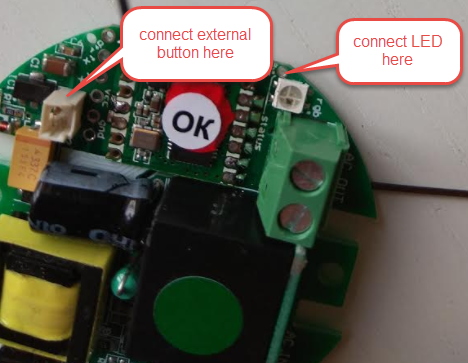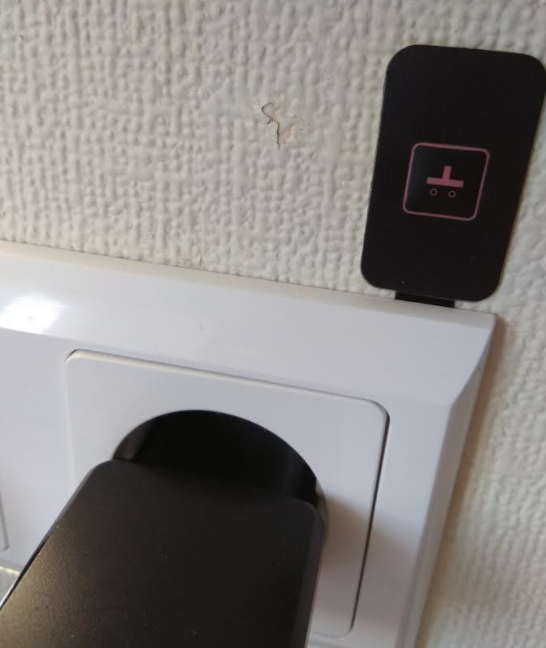💬 Wall Socket Insertable Node
-
@shabba said:
Any update on this? This would scratch my latest itch! :-)
Both versions of this board are under intensive testing now. I've tuned it a little these days for working in very cold enveronment (it is very cold now in my country, up to -25-30C).
-
@shabba said:
Any update on this? This would scratch my latest itch! :-)
Both versions of this board are under intensive testing now. I've tuned it a little these days for working in very cold enveronment (it is very cold now in my country, up to -25-30C).
-
Hi Koresh,
Thanks for the last update and congratulations on finishing the design. You mentionned some time earlier that you wanted to sell these (and also CE approval?). Could you tell us the status of this?
Thanks,
Pierre@PierreSt Many thanks for you attention to this project. I will add all assembled boards to Ebay next week. My devices successfully passed all safety tests. But unfortunatelly I have no enough resources to complete CE certification yet.
-
Found it on ebay - is it yours Koresh?
http://www.ebay.com/usr/easysensors
For now there is only Wall Socket insertable node on stock, more boards will come soon I hope -
Found it on ebay - is it yours Koresh?
http://www.ebay.com/usr/easysensors
For now there is only Wall Socket insertable node on stock, more boards will come soon I hope -
@DavidZH Sorry for such long delay with this question. I will try to explain it carefully now.
I think it is not possible to buy ready transformer on ali or anywhere else. You can only derive it yourself according to your schematic and produce it at any factory according to your requirements.
This board has flyback power supply so you can use any flyback transformer design guide, or use as similar as possible reference design. I used EBC10010 reference design to produce the required transformer.
The main difficulty is the difference between theoretical transformers and produced transformers, so we should tune our schematic to produced transformer a little. Now I have a small batch of transformers almost all of which are soldered on the boards. When I place an order for the next batch of transformers (may be a larger one), I can who send it to anyone who is interested (of course with a tuned schematic if the next batch is different). -
@DavidZH Sorry for such long delay with this question. I will try to explain it carefully now.
I think it is not possible to buy ready transformer on ali or anywhere else. You can only derive it yourself according to your schematic and produce it at any factory according to your requirements.
This board has flyback power supply so you can use any flyback transformer design guide, or use as similar as possible reference design. I used EBC10010 reference design to produce the required transformer.
The main difficulty is the difference between theoretical transformers and produced transformers, so we should tune our schematic to produced transformer a little. Now I have a small batch of transformers almost all of which are soldered on the boards. When I place an order for the next batch of transformers (may be a larger one), I can who send it to anyone who is interested (of course with a tuned schematic if the next batch is different).@Koresh Thanks for the explanation.
I've been searching for a power solution for my nodes. And that's quite the task.... For now I'm working with the HLK, but that's a tight squeeze. And when I want to make a dimmer, I could use a zero cross circuit. I've been looking into Vigortronix, who have a supply similar to the HLK, but with an extra pulse output for the zero-X. Too bad they are WIDE. They won't leave any proper room for a relay or connection terminal.
I'll take a look at your link and see if I can make that work in my case, and may come back to you for some magnetics. -
Unfortunately I can't open my ebay shop right now. While I'm trying to open it, you can buy this board here: https://www.ebid.net/eu/for-sale/arduino-ide-compatible-low-profile-220v-10a-relay-rfm69hw-433-mhz-radio-156694939.htm
-
in case you want to use the wall plug manually when a device is connected (without mysensors), it will not work at all in case the relay has been switched ? How do you manage external usage ?
-
in case you want to use the wall plug manually when a device is connected (without mysensors), it will not work at all in case the relay has been switched ? How do you manage external usage ?
Assume you need to use it with some kind of momentary or rocker switch in case you lose connection to the gateway. Use JST connector and enable A2 internall pullup. JST connector pins are A2 and ground.
-
Assume you need to use it with some kind of momentary or rocker switch in case you lose connection to the gateway. Use JST connector and enable A2 internall pullup. JST connector pins are A2 and ground.
@yury i have built a system quite simular but still big mess in the connections. However, i am trying to have a detection when an equipment is plugged in into the wall plug to automatically activate the relay?
You may ask why? Simple reason. At home my wife doesnt use the automation system. If she plug in a device (charger, coffee machine, etc, it should work automatically without to have to switch the node via the mysensors controller. Normal usage of the plug should in my case be working. -
@yury i have built a system quite simular but still big mess in the connections. However, i am trying to have a detection when an equipment is plugged in into the wall plug to automatically activate the relay?
You may ask why? Simple reason. At home my wife doesnt use the automation system. If she plug in a device (charger, coffee machine, etc, it should work automatically without to have to switch the node via the mysensors controller. Normal usage of the plug should in my case be working.@jeremushka In my opinion you should have two modes - automatic (with mysensors) and manualy (without). In manualy case the wall plug must be always under the voltage and you don't need detect plug a device. But how are you going to switch mode - this is a question...
-
@jeremushka In my opinion you should have two modes - automatic (with mysensors) and manualy (without). In manualy case the wall plug must be always under the voltage and you don't need detect plug a device. But how are you going to switch mode - this is a question...
@kalina said in 💬 Wall Socket Insertable Node:
But how are you going to switch mode - this is a question...
Long button pressure for example :)
-
@jeremushka In my opinion you should have two modes - automatic (with mysensors) and manualy (without). In manualy case the wall plug must be always under the voltage and you don't need detect plug a device. But how are you going to switch mode - this is a question...
@kalina agree with you. By pressing a button in that case better not to insert the system in the wall. To get outside plug. Something like the fibaro plug which is working with these two modes.
-


make sense?
sketch is here
https://github.com/EasySensors/WallSocketInsertableNode/blob/master/WallSocketInsertableNode.inobut no LED support there, but easy to add.
Yes, it will work if no gateway around.
